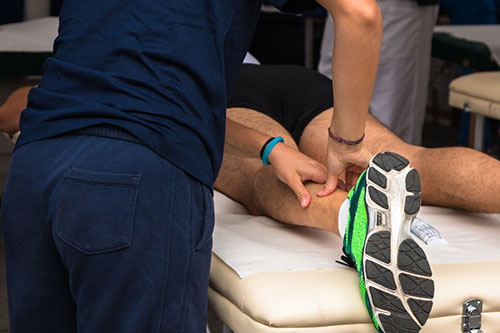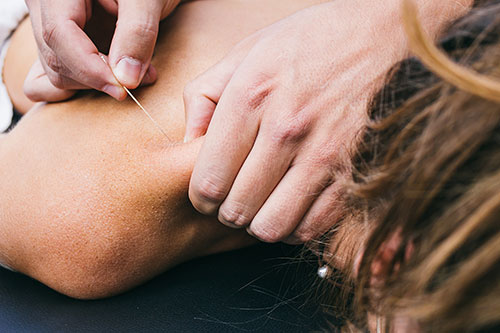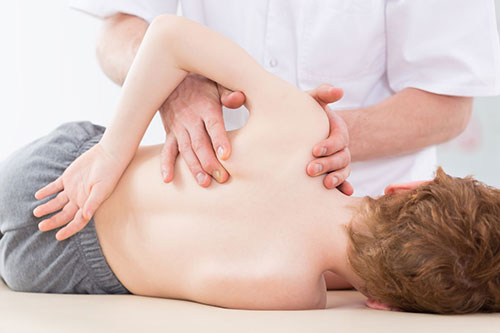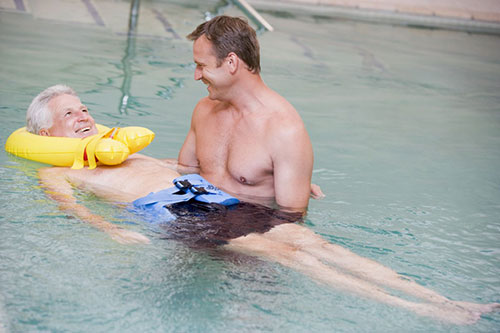
Our Services
Understanding your injury and treatment is key to recovery. Our experienced physiotherapists take the time to assess, diagnose, and treat a wide range of musculoskeletal and pain-related conditions, while encouraging you to ask questions and stay involved in your care.
We help you recover faster, return to work, life, and sport, and reduce the risk of future injury by treating the root cause. Every treatment plan is personalised, goal-focused, and centred on prevention as well as recovery.
Services
Your needs are important to us, so take a look at what we can do for you.
Vestibular Physio

Dizziness, vertigo, visual disturbances, impaired balance and poor gait pattern are common symptoms associated with vestibular conditions.
North Perth Physiotherapy have trained physiotherapists who specialise in assessing and treating patients with vestibular disorders. There are a number of vestibular conditions that can be effectively treated including Benign Paroxysmal Positional Vertigo (BPPV), Meniere's disease, Labrinthitis and Neuronitis.
An initial assessment is crucial to differentiate between these conditions for correct diagnosis and treatment which includes habituation exercises, visual exercises and gaze stability with a focus on functional retraining to return to full activity.
Chronic Pain

Our team play a vital role in assisting the management of chronic pain conditions with education on pain, desensitisation of painful tissues, pain coping strategies and graded exercise programs to steadily increase exercise tolerance which empowers people to manage their conditions.
Pain can be defined as chronic when it persists beyond the normal healing time of 3 months. Whilst the term chronic gives an indication of the duration of the pain, it doesn’t provide an indicator of the severity or type of pain. Chronic pain can sometimes be traced back to an injury, however becomes complicated when causation is unknown. Approximately 1 in 5 Australians are currently suffering from chronic pain.
The experience of pain relates to the activity of the ascending/descending neural pathways and the central processes of the spinal cord and brain (central nervous system or CNS). In the presence of chronic pain when the CNS becomes affected this is known as CNS sensitisation. When this occurs, factors such as a patient’s past experiences and their thoughts and emotions can play a role in affecting their state/degree of pain.
Several conditions, which have been used to define a set of chronic pain symptoms, are worth being aware of and include:
- Complex regional pain syndrome (CRPS): CRPS is often described as a burning or throbbing sensation or shooting type of pain and normally affects a particular limb post injury or illness. It occurs after the original injury has healed, however the pain lingers and becomes problematic.
- Fibromyalgia: a condition used to describe general pain which is often widespread, more common in females, and is associated with fatigue and multiple tender points.
- Chronic low back pain: a term used to describe continuous back pain in the lower region of the back and can include symptoms of pelvic pain and sciatica.
Pain is a complicated system and therefore is at the forefront of physiotherapy and medical research currently. The complexity of pain encompasses more than just biological factors such as genetics, biomechanical function and the presence of inflammation.
It is also influenced by psychological factors including mood, personality, behaviour and social aspects such as culture, family and socioeconomics. This has led to the term the “biopsychosocial model” of pain, in which it is imperative that all of these elements, associated with pain, are managed.
This can be achieved with good communication between health practitioners, including pain management specialists, psychologists, physiotherapists and exercise physiologists, to create a plan for reduction of chronic pain.
Also an important goal of the intervention will involve promoting return to normal activities, both in the workplace and recreationally, in addition to establishing new activities which may have previously been avoided due to the influence of pain.
Sports Injury

Successful treatment of all sport injuries for professional athletes to the weekend warriors. Our highly experienced team have worked with athletes at the Hopman Cup, WAFL State Academy and various other sporting clubs including soccer, volleyball and swimming.
A sports injury is damage to the body that occurs during exercise or whilst playing sport. A sports injury can fall into one of two categories: acute or chronic. Acute injuries usually occur from direct trauma, such as body contact with an opposition player or due to failure of a ligament or muscle.
Chronic, or overuse injuries, occur when someone has exercised or played a sport for a long period of time. These chronic injuries can be more complicated to diagnose and treat due to them often being multifactorial in nature.
- Common acute sports injuries include ankle sprains, hamstring tears and shoulder dislocations.
- Common chronic/overuse sports injuries include tennis elbow, stress fractures and runners knee.
What treatments are available for a sports injury?
- Surgery: if severe enough, surgery may be required.
- Non-steroidal anti-inflammatory drugs (NSAIDS): your Doctor may prescribe these to alleviate any associated pain and/or swelling.
- Rest, ice, compression, elevation (RICE): the basic 'RICE' principal can be utilised to reduce any pain and/or swelling experienced.
- Rest / immobilisation: depending on the severity or nature of the injury, a period of rest and immobilisation can often assist in settling the injured area.
- Rehabilitation: following the initial rest period post injury, a process of rehabilitation typically follows, involving the prescription of exercises to help the injured area recover and prepare for a return to sport/activity.
- Load management and injury prevention: a key concept in managing and preventing sports injuries involves having an understanding of the difference between training load and the athlete’s capacity to handle load.
When can I return to sports/exercise following an injury?
This conversation is best had with your physiotherapist who will guide you through the rehabilitation process and is aware of strategies to assist preventing future injury.
Dry Needling

Dry needling acupuncture functions to provide muscle relief and pain reduction and can be effective for people with chronic pain through to treatment of elite athletes. Our qualified physiotherapists have been trained in dry needling techniques with the application to specific pathologies.
Dry Needling is an effective technique used by physiotherapists to treat pain arising from muscles and/or nerves, involving the placement of a needle into a trigger point. A trigger point is a point within the muscle that can be painful to touch and can produce significant pain over a large area. These trigger points may be too deep to be effectively treated by other treatment techniques and by using needles, the treatment is far less painful.
The evidence base for dry needling in physiotherapy has increased substantially over the past decade. Research provides evidence-based support for dry needling in the treatment of acute and chronic back pain, chronic neck pain, tension and migraine headaches, pelvic girdle pain, knee osteoarthritis, lateral elbow pain and shoulder conditions.
Dry needling can be used for a variety of musculoskeletal problems. Some of the common conditions include:
- Sore/stiff neck
- Back and shoulder pain
- Arm pain (tennis elbow, carpal tunnel syndrome)
- Headaches
- Jaw pain
- Leg pain (sciatica, hamstring strains, calf tightness/spasms)
Dry needling is not a fix-all solution, it’s usually just one piece of the puzzle and we use it in conjunction with a combination of manual therapy treatments therefore we may incorporate this into your Physiotherapy treatment if required. We do not charge extra for this treatment and we only use the highest quality, sterile, surgical steel needles.
Dry Needling v Acupuncture
Dry needling is different from traditional Chinese acupuncture. Both methods involve inserting a needle into the tissue, however there are significant differences in the evaluation, application and overall goal of the treatments. Traditional Chinese acupuncture involves inserting needles along a meridian, based on Eastern Medicine principles. Whereas, Dry Needling involves an examination of the neuromuscular system and insertion of a needle within the muscle in order to decrease pain and restore function.
Paediatric Physio

Provision of innovative, progressive and personalised services to infants, children and adolescents in the assessment and management of musculoskeletal and neurological conditions.
North Perth Physiotherapy offer specialised services for babies, children through to adolescence.
Emphasis will be on teaching children how to be their own 'best therapist' and for them to feel empowered by learning how to control and coordinate their own movement.
Physiotherapy intervention can help to manage and treat the following:
- Hypermobility disorders and connective tissue disorders
- Gait abnormalities (pigeon toe, knocked knees, toe walking etc)
- Hip Dysplasia
- Generalised Developmental Delay/Coordination problems
- Movement disorders
- Baby head shape/Infant torticollis
- Chronic regional pain syndromes
- Cerebral Palsy, Muscular Dystrophy, Down’s Syndrome
- Sporting injuries
Exercise Rehabilitation

Our team of professionals offer experience in rehabilitating patients post injury and maximising performance for the athlete. To personalise exercise programs our exercise physiologists can also provide consultations at patients’ individual gyms.
North Perth Physiotherapy have physiotherapists and accredited exercise physiologists to manage your injuries from acute stages to return to full function or sport. We can provide an initial assessment in order to test your fitness capacity, body composition, along with general postural screening for injury management and prevention.
Programs are individualised based on your chosen goals from improving fitness, weight loss or management of chronic health related conditions like diabetes, cardiovascular disease and musculoskeletal conditions. We also offer services for healthy populations wishing to reestablish an exercise routine to those looking at achieving ample function. Exercise consultations can take place in-house, at your local gym or we can set you up with a home based exercise program.
Remedial Massage

Effective in the treatment of muscular stiffness, soreness and tension resulting from sport or injury and can aid return to normal health for those with musculoskeletal disorders. Our trained remedial massage therapist can also work in conjunction with your physiotherapist and/or Exercise Physiologist as required.
Remedial massage is a specialist massage technique where practitioners are highly trained and educated on ailments impacting the human body. North Perth Physiotherapy provides professional remedial massage specialising in headaches, pregnancy, sport injuries, injury rehabilitation along with relieving general muscle soreness and tension.
If you are unsure whether Remedial Massage Therapy would be appropriate for your condition, it is recommended you book an appointment with a physiotherapist for an assessment prior to commencing Remedial Massge Therapy.
Real Time Ultrasound

Real time ultrasound is offered in conjunction with physiotherapy treatment for assessment and muscle retraining, including the pelvic floor, deep abdominals and hip musculature.
Real time ultrasound uses sound waves to view deep structures such as muscle, tendons and connective tissue. It is a clinically effective way of assessing stability, strength, motor control and co-ordination of certain muscles. Our physiotherapists are trained to use real time ultrasound as a biofeedback tool for retraining muscles for incontinence and pelvic floor muscle weakness, pre and postnatal complaints of incontinence, pelvic instability and low back pain.
Hydrotherapy

Our hydrotherapy program aims to introduce self-management into your treatment plan and can assist relieving pain, mobilising joints, strengthening muscles, developing balance and coordination, improving general fitness and heart/lung function and with clinical rehabilitation.
Hydrotherapy is a low impact option for those requiring a gentle reintroduction to exercise following injury, post-operative rehabilitation or for those wanting to improve balance, coordination and general fitness.
Our physiotherapist will work with you one on one in the pool to develop an individualised program to target any of the following:
- Low back pain / sciatica / lumbar instability
- Whiplash & other neck pain
- Shoulder and arm pain
- Osteoarthritis, Rheumatoid Arthritis & Fibromyalgia
- Back and pelvic pain during & post pregnancy
- General fitness and weight loss
Headache Care

Headache and migraines are often cervicogenic in nature (neck related), which our physiotherapists can assist via manual therapy, exercise prescription and ergonomic advice.
Headaches can literally be a pain in the neck!
They are frequently caused by joint or muscular dysfunction in the neck, poor posture, emotional tension or a combination of these. Headaches originating from or relating to neck dysfunction can be very successfully treated and prevented via physiotherapy.
What is a Cervicogenic Headache?
Cerrvicogenic headaches are headaches caused by abnormalities in the neck and head region. The cause of headaches can be referred from the upper cervical (neck) nerve roots, segments of the cervical spine, which can irritate some of the sensory nerves. Headaches can also be caused by trigger points in the neck and head muscles.
These headaches may present as:
- Pain & tension in the neck
- Pain, ache & pressure in the forehead and back of the head
- Tension in the temple & jaw area
- Pain that is made worse with sustained & repeated postures & movement of the neck
- Pain with a feeling of light headedness or dizziness
How Physiotherapy can help
Physiotherapy treatment can assess and treat abnormalities found in the joints, muscles and neural structures. As well as provide education on posture and work practices and address other potential causes of headaches such as hydration status, stress and inactivity.
Posture correction – recommendations via specific exercises, posture awareness techniques, taping or a postural brace.
Stretching – stretching of the neck and shoulder muscles can help alleviate headaches.
Stress & tension management – Often this leads to tightness in the upper back and neck muscles. Identification and reduction of the sources of stress and tension needs to be incorporated.
Soft tissue work & massage – Your physiotherapist may use various massage techniques to help release the muscles in your neck and upper back.
Dry needling – dry needling is the placement of very thin needles into specific locations in the body and it is very effective in helping alleviate headaches.
Workplace / ergonomic assessment – your chair, desk height and/or computer angle may result in poor posture contributing to neck strain. Your physiotherapist can advise on office and workplace set up.
Decrease neural tension – abnormal neural tension can also contribute to cervical headaches. Your physiotherapist will assess this and provided appropriate exercises as required.
Please Contact Us for more info

